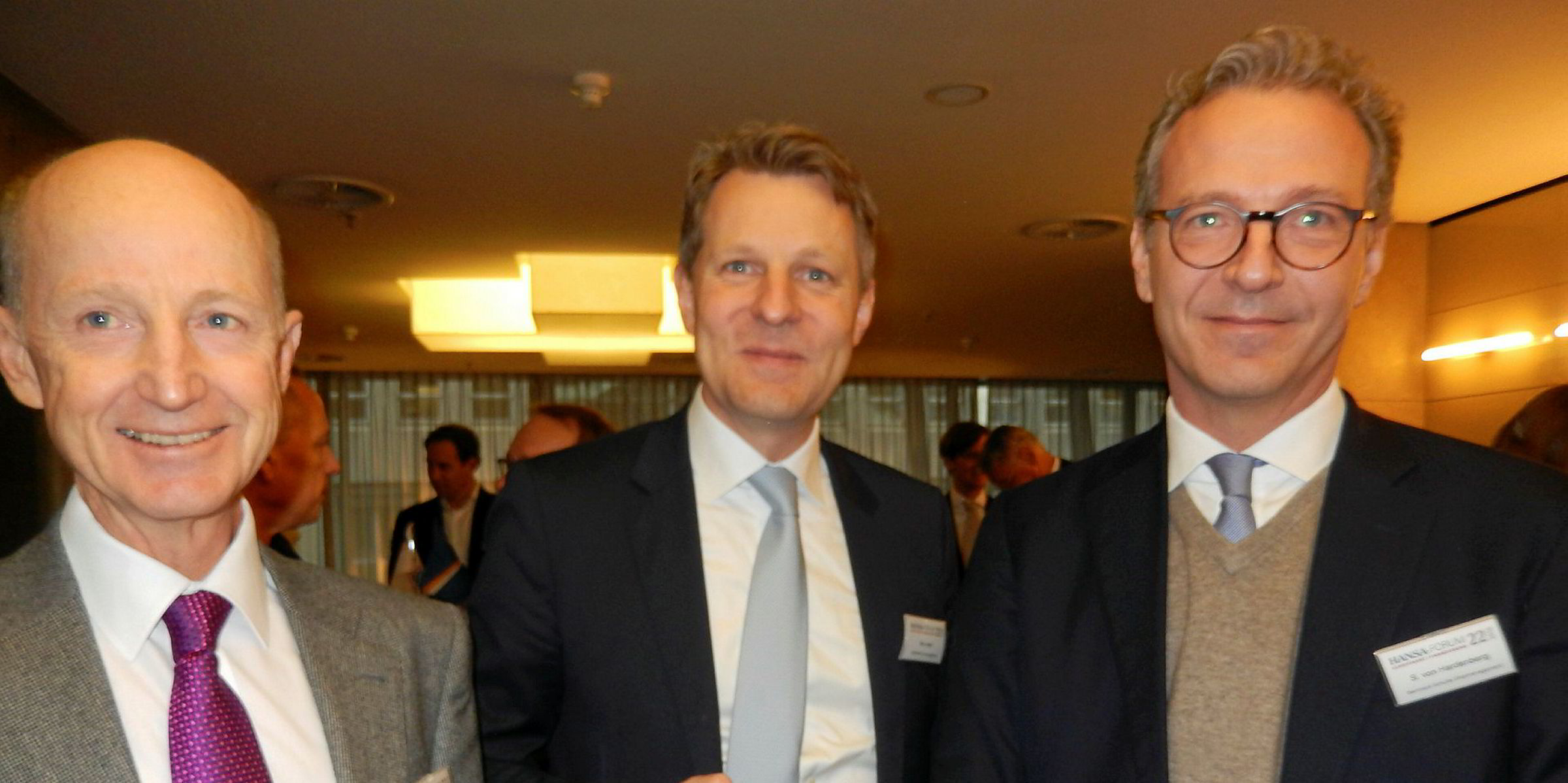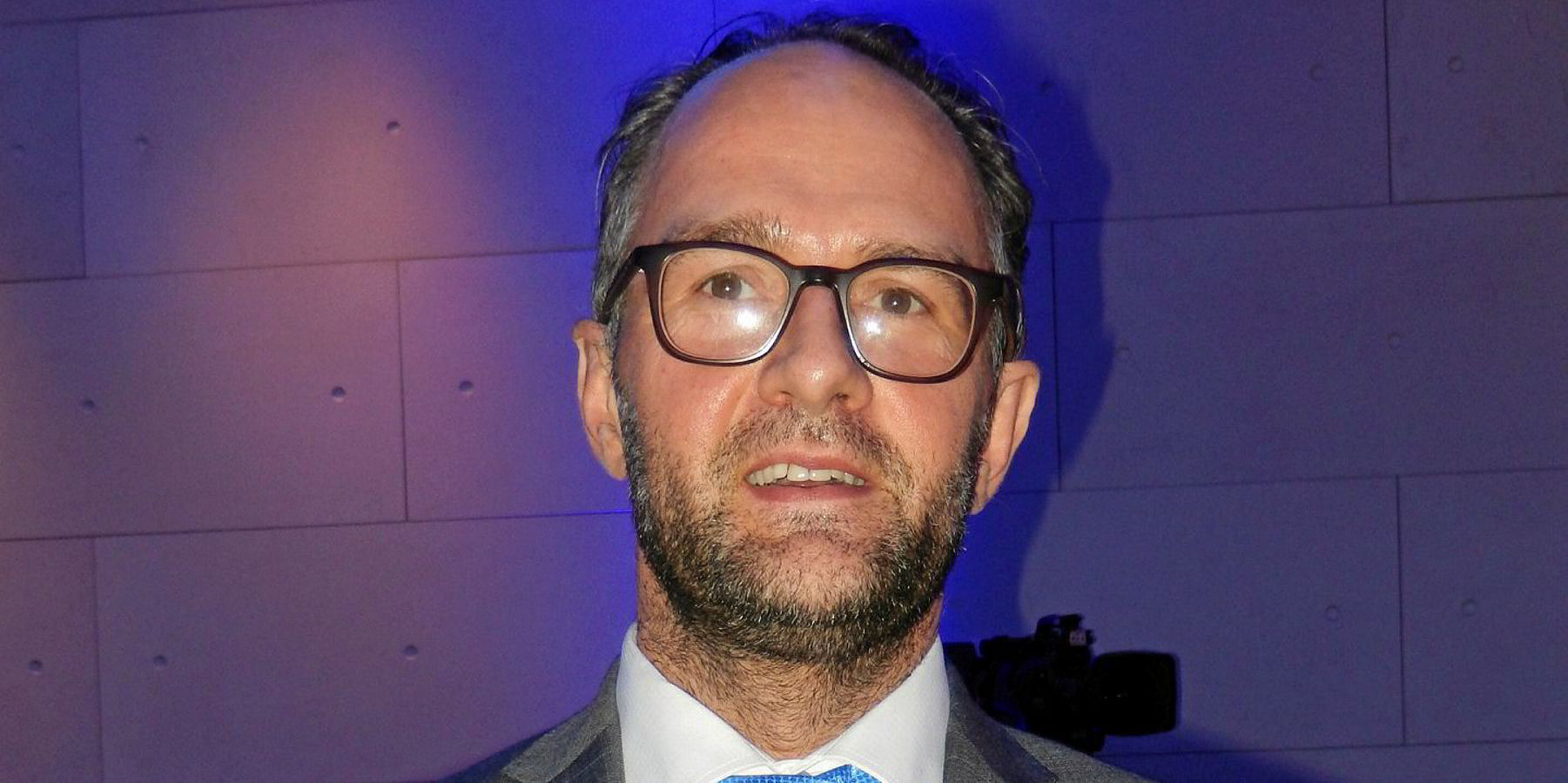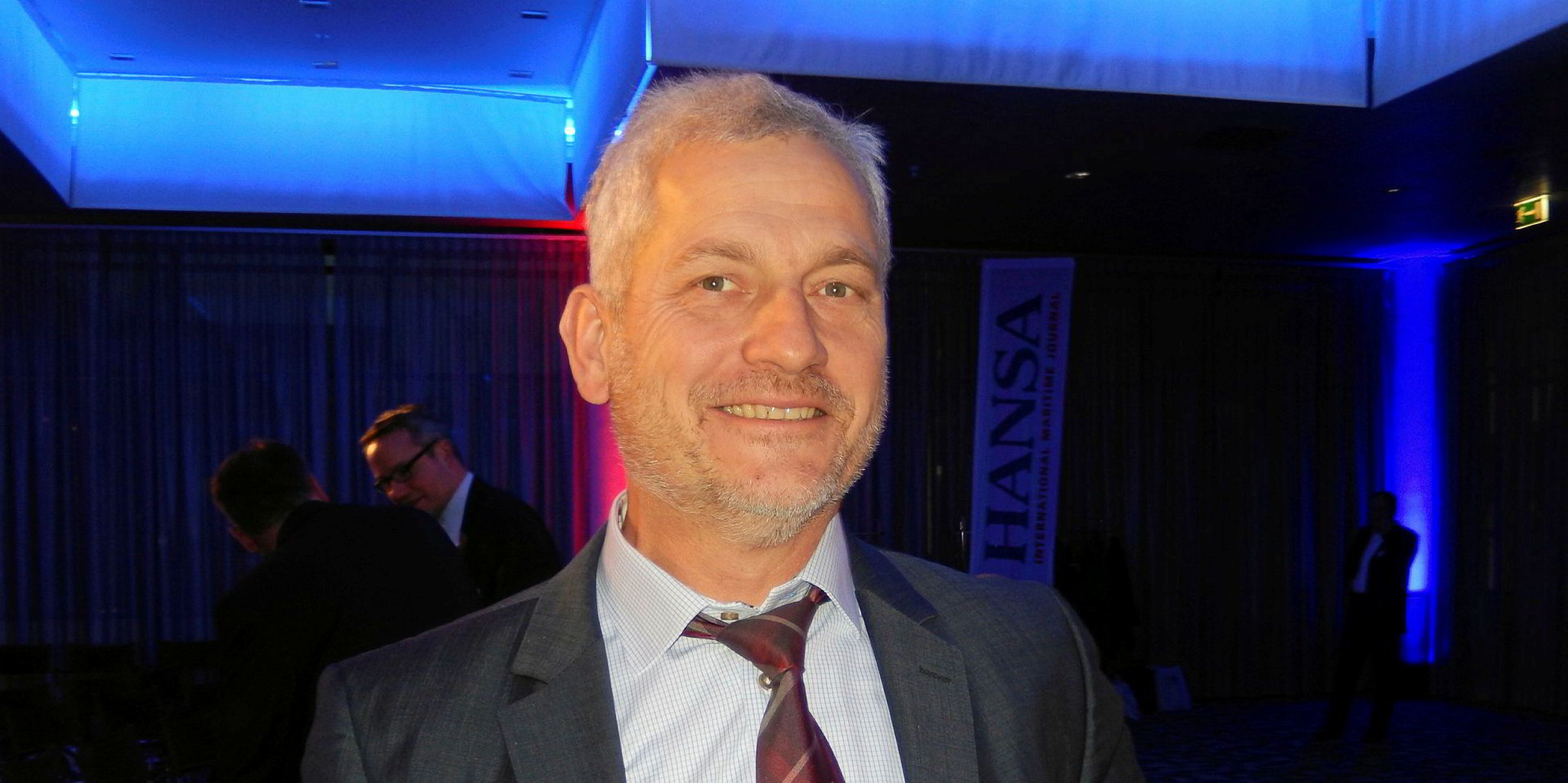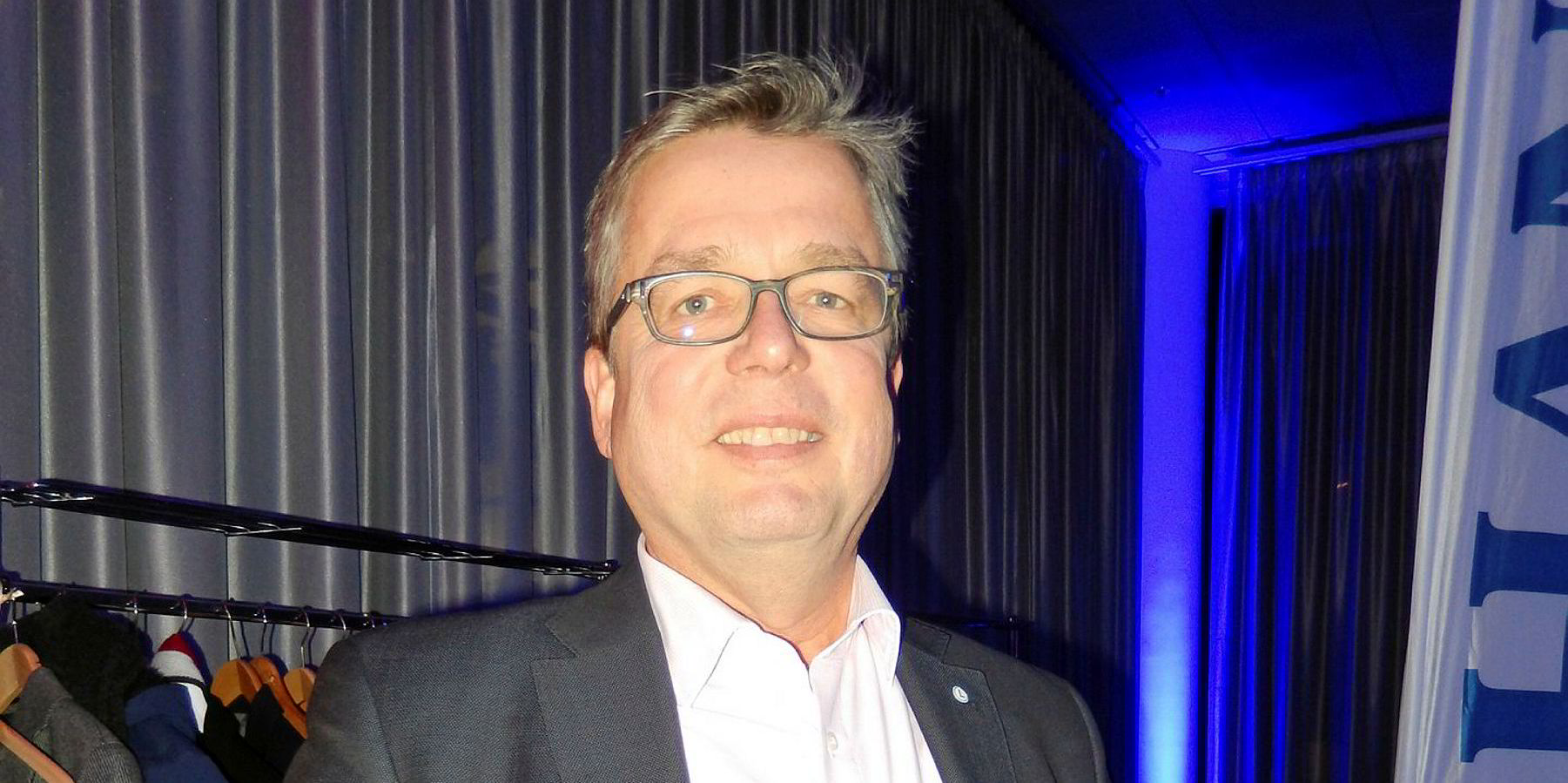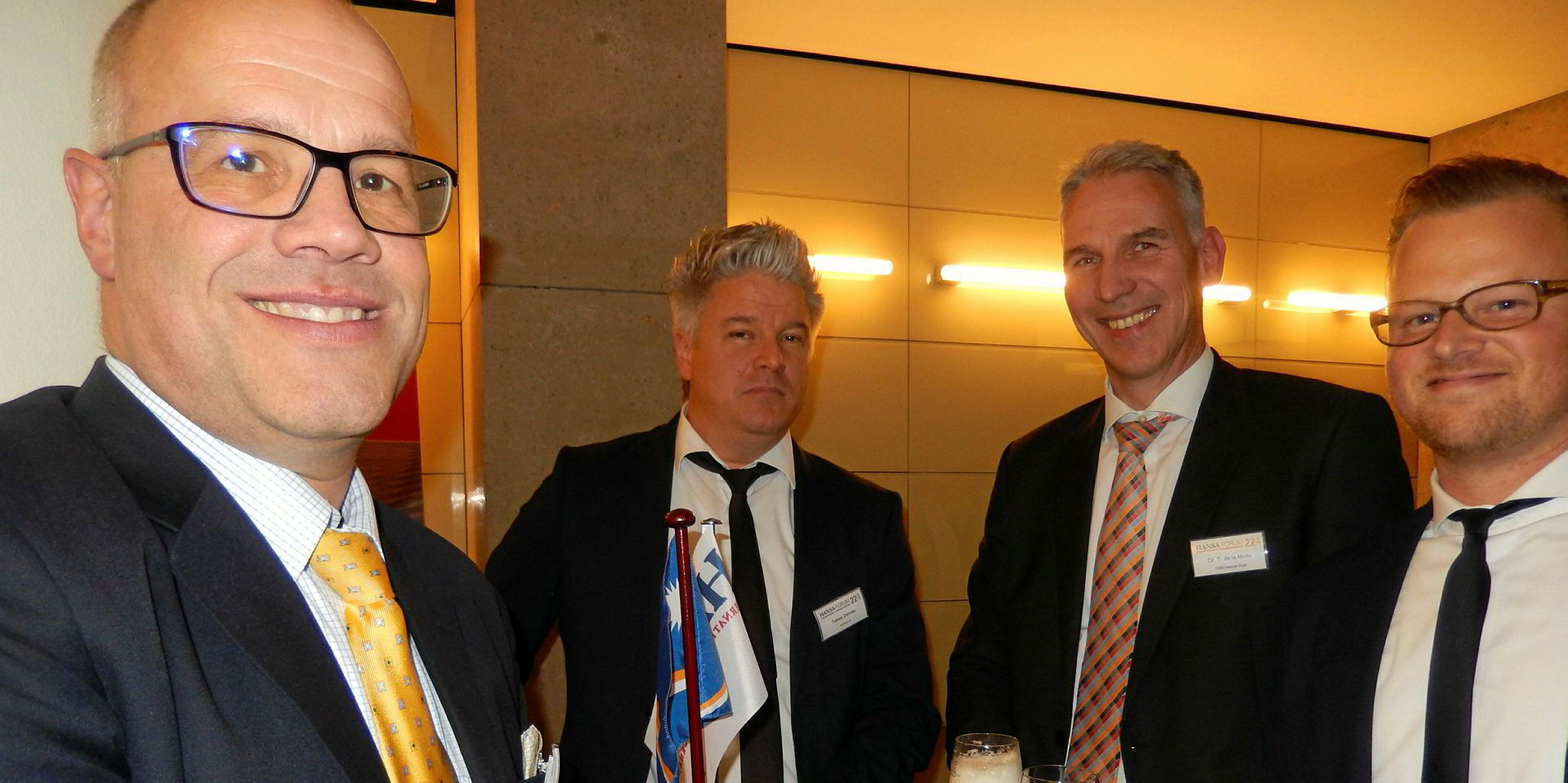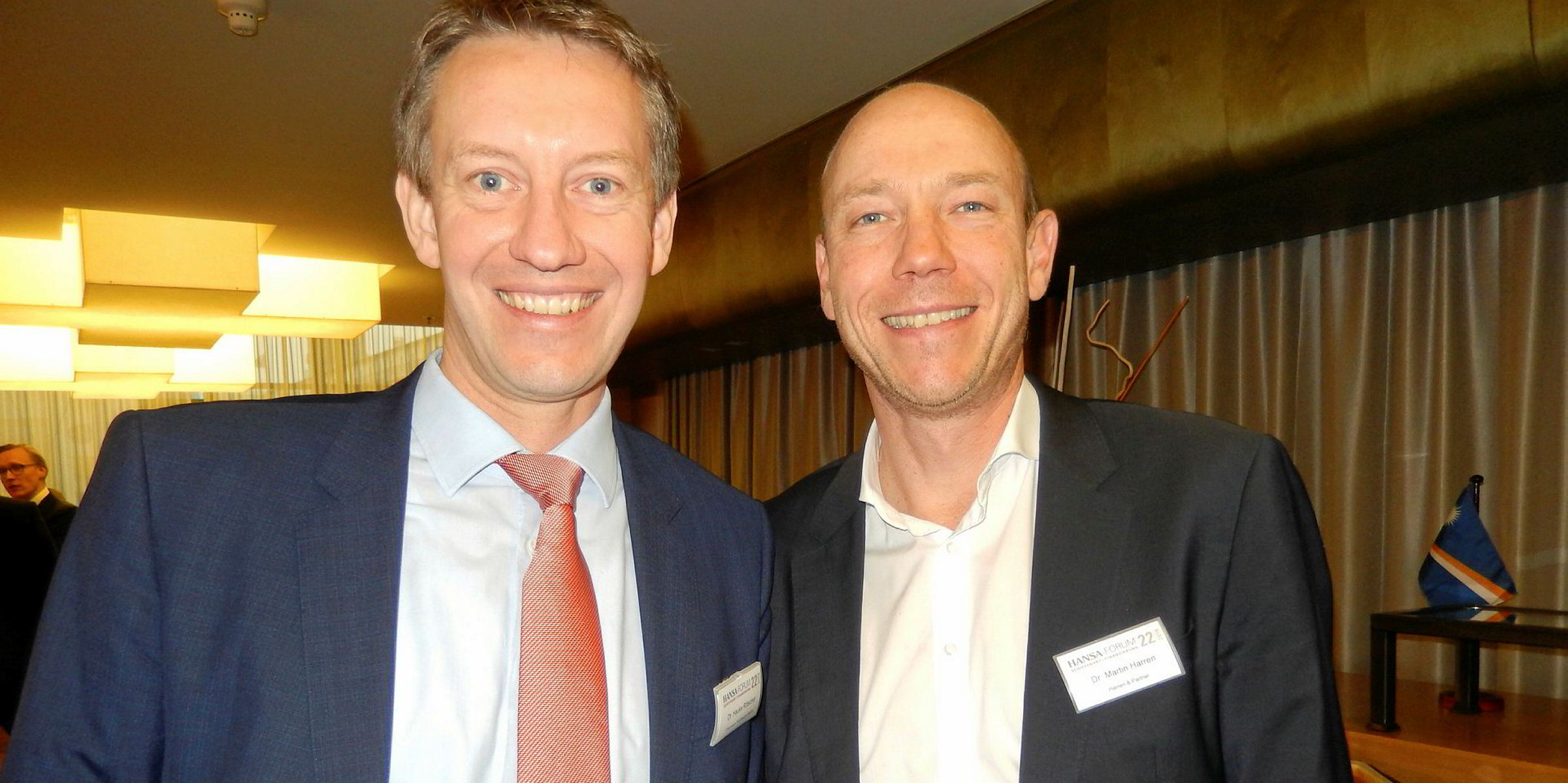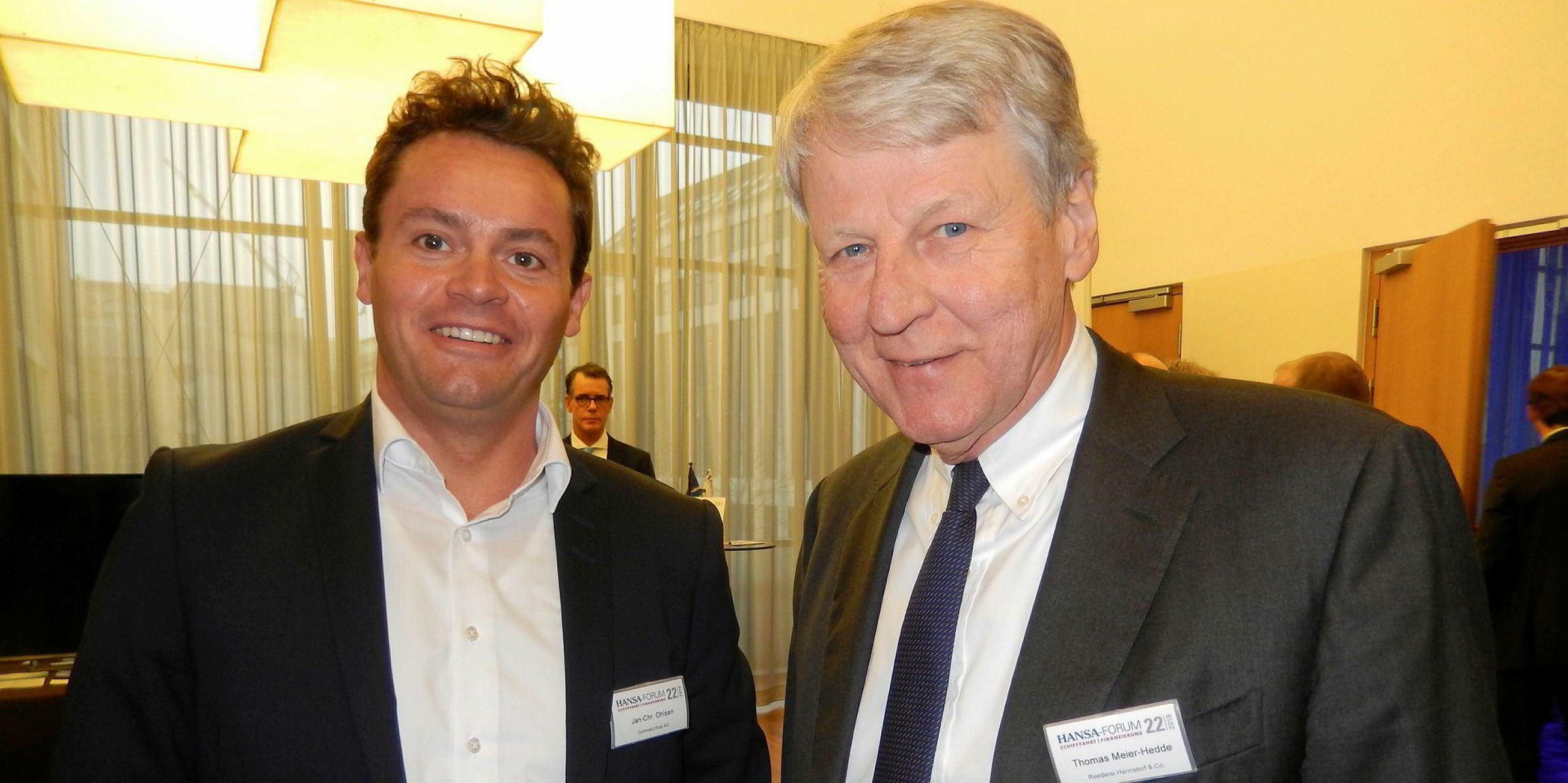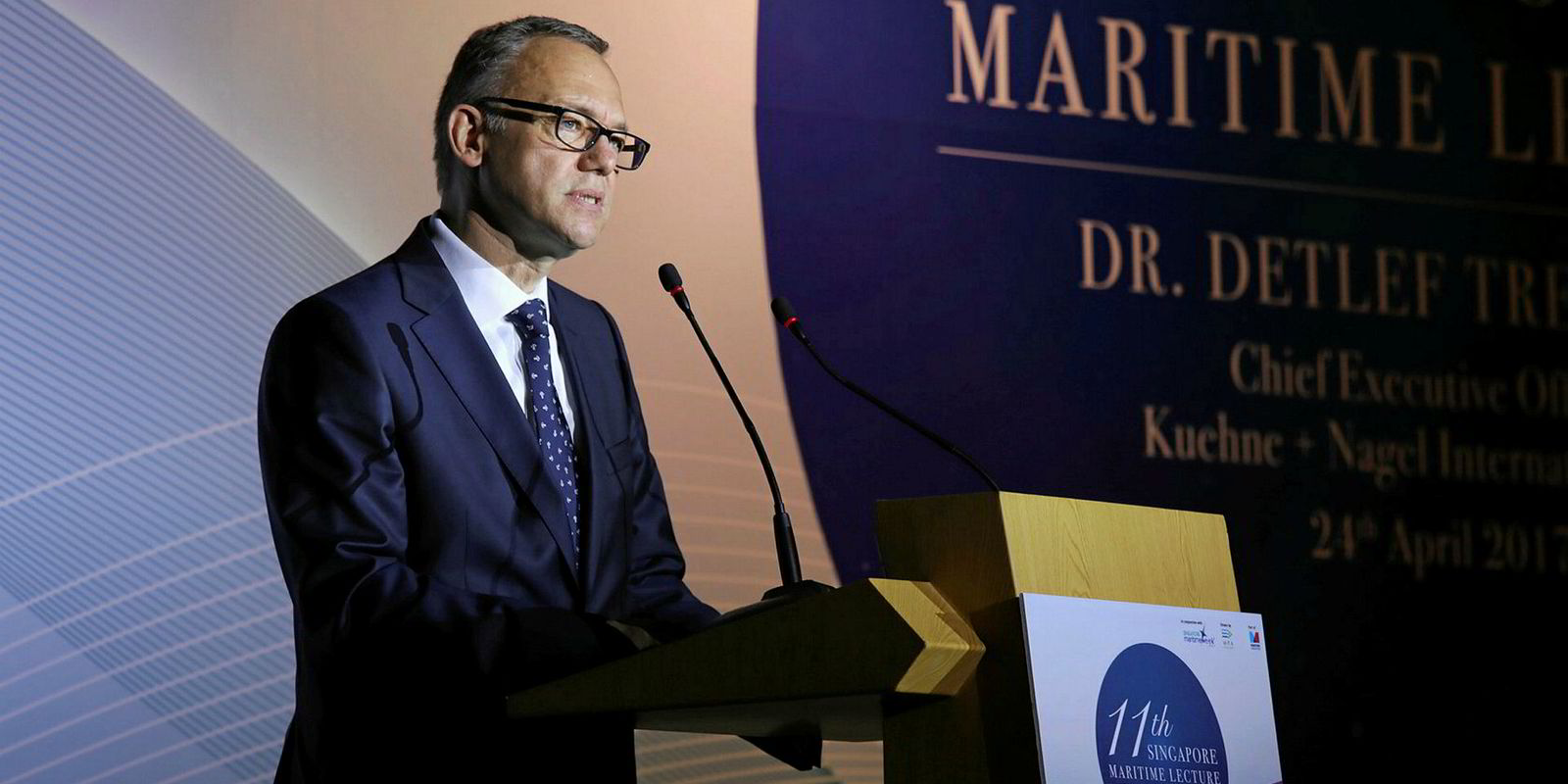Hardly a bad word was spoken about the 2020 legislation at the Hansa Forum in Hamburg, but few went as far with their praise as Clarksons Platou Securities chief executive Erik Helberg.
“It’s fantastic," he said. "It’s the best trick in the industry of this century.”
More expensive fuel means ships will slow down. There will be reduced supply. And shippers will push business forward to 2019 to take advantage of cheaper fuel, he said.
That positive message was echoed by many at last week's meeting, which took place at the Sofitel Hotel under the topic, Strategies for 2020 and Beyond.

Hapag-Lloyd chief operating officer Anthony Firmin said liner operators were in favour of the legislation.
The fact that sulphur legislation would cost a lot of money — up to $15bn for the liner sector — was a good thing.
“If it was only going to cost $100m or $200m, we’d probably squabble over who’s paying for it," Firmin said. "But because it’s going to cost a substantial amount of money, there’s no way you cannot pass it down the supply chain.”
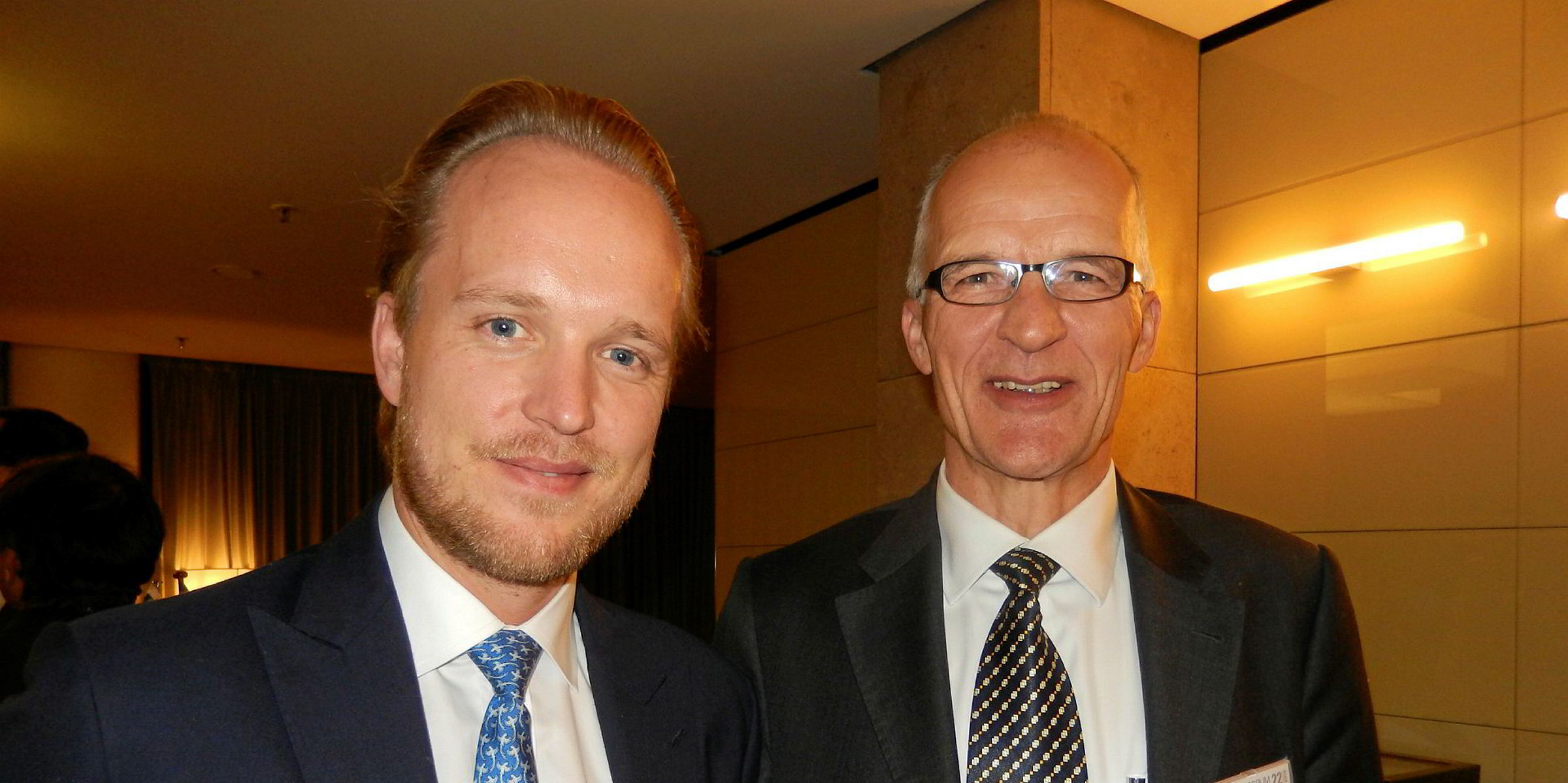
Otto Schacht, Kuehne + Nagel’s executive vice president of sea logistics, said shippers are happy to pay.
He labelled as negligible the estimated $100 extra that it is likely to cost shippers, compared with rises of more than $1,200 per container in the transpacific.
Banks are also happy to fund it, with ABN Amro global head of transportation Joep Gorgels stating that his organisation is keen to position itself as a financier of green shipping.
“Scrubber or no scrubber, it’s going to be good,” Helberg said.

